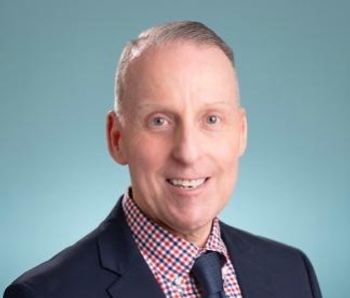
Fewer doctors report burnout, but more are isolating from loved ones
A new survey from The Physicians Foundation finds many of the nation’s doctors are struggling. Dr. Gary Price talks about the challenges and how hospitals can help their physicians.
Even with fewer doctors reporting burnout, America’s physicians are struggling with their mental health, with many grappling with anger, anxiety and hopelessness.
The Physicians Foundation
The survey, which was released last week, found 54% of physicians reporting symptoms of burnout, down from 60% a year ago. The drop in burnout represents perhaps the most encouraging element of the survey, and
Even so, more than half of respondents are experiencing burnout, and that’s not good news, says Gary Price, MD, president of The Physicians Foundation.
“Burnout levels are still well above the pre-pandemic levels that we found back in 2018,” Price tells Chief Healthcare Executive®. “And at that point, burnout levels were 40% among physicians, which we really considered a crisis at that point.”
Price urges leaders of hospitals and health systems to pay attention to the high levels of burnout and stress of physicians.
“I think this is a great concern, because burnout levels correlate with turnover rates,” Price says. “We know that burned out physicians don't provide care with as high a level of quality, or outcomes. We know that burnout and turnover are self-reinforcing cycles, and they have a direct effect on the quality of care patients get, on their ability to access that care. And in the end, the cost of care is also increased with higher levels of burnout.”
"From the standpoint of someone managing a healthcare organization, this is really an important indicator that we need to do something about. It's going to affect our patients and the bottom line of our institutions, without question," he says.
(See part of our conversation with Dr. Price. The story continues below.)
‘Not wanting to talk’
While fewer doctors reported burnout, physicians also revealed the burdens they are carrying.
More than half of respondents (57%) said they felt inappropriate anger and anxiety over the past year, which is similar to levels in 2021-2022. Over a third (34%) of doctors say they felt hopeless and felt like they lacked purpose, up from 30% last year.
Perhaps as troubling as any finding in the survey, more doctors say they are pulling away from loved ones. Nearly half (46%) said they withdrew from family, friends and colleagues, a significant increase from a year ago (38%).
Price suggests that’s an indicator of the toll on doctors.
“Having gone through it myself, it's an early symptom of being stressed at work, feeling bad about that, feeling that one's losing control, being immersed in that environment for 12 to 16 hours a day, and then coming home and just not wanting to talk about it,” Price says. “It underscores the need, I think, for us to continue to try to be able to provide more support from peers.”
Far too many physicians still say there’s a stigma for acknowledging burnout and anxiety and seeking assistance for it.
Nearly three out of four doctors (73%) say there is a stigma for physicians surrounding mental health and seeking treatment, and that’s actually lower than it was in the foundation’s survey three years ago (80%).
“I think there's still a huge issue with stigma among physicians, as far as seeking help for behavioral health,” Price says.
Doctors have expressed reluctance for seeking mental health treatment for fear that it will hurt their careers, and that sentiment remains a substantial obstacle.
The Dr. Lorna Breen Heroes Foundation has lobbied states
More hospitals are also dropping such questions from job applications, with more than 600 hospitals revising their applications.
Price is encouraged by the success of the Lorna Breen Foundation, which has led to millions of healthcare employees working in organizations without those questions. But he says more hospitals and health systems need to revisit their applications and what they’re asking doctors about their mental health.
“It's been very gratifying to see the states drop those questions from their applications and the remaining states they're still working on. But the majority of states now have dropped them, and now we need to work on the hospitals to get those credentialing applications taken off. But getting rid of that stigma is a key part of the puzzle of improving the situation,” Price says.
Physicians are also struggling with
The National Institutes of Health, the prime federal agency supporting medical research,
“This is an incredible stress,” Price says. “Not only have whole programs been eliminated, but there's no certainty about the future whatsoever, and there's a great deal of concern about what we're losing, what we could lose.”
What hospitals can do
Beyond revising applications, hospitals and health systems need to focus on other ways to help their doctors. Price emphasizes the value of “confidential support and peer support within the organization.”
But he says health systems should work to encourage doctors to get mental health treatment outside the organization.
“Physicians and other healthcare workers in their institutions really optimally should have access to mental health care that doesn't require care within their own institution's walls, because of the barriers that it sets up,” Price says.
Price also says hospitals need to make their workplace better for their physicians and all their employees. Hospital leaders need to be confronting problems in
“That involves advocating to insurance companies to remove those barriers when they just don't make sense,” he says.
Health systems can also look to try and examine ways they can reduce some of the administrative burdens on physicians that can wear them down.
Ultimately, he says systems need to do more than offer yoga classes to reduce stress.“This isn't a question of making the workers more resilient,” Price says. “These people, in all aspects of that health care, are pretty resilient to start with, but the system has to make their work environment better.
“Sending out for more resilient workers is a little bit like the administrator of a coal mine hearing that the canaries were dying, and sending out for tougher canaries,” Price says.
Getting help




















































































